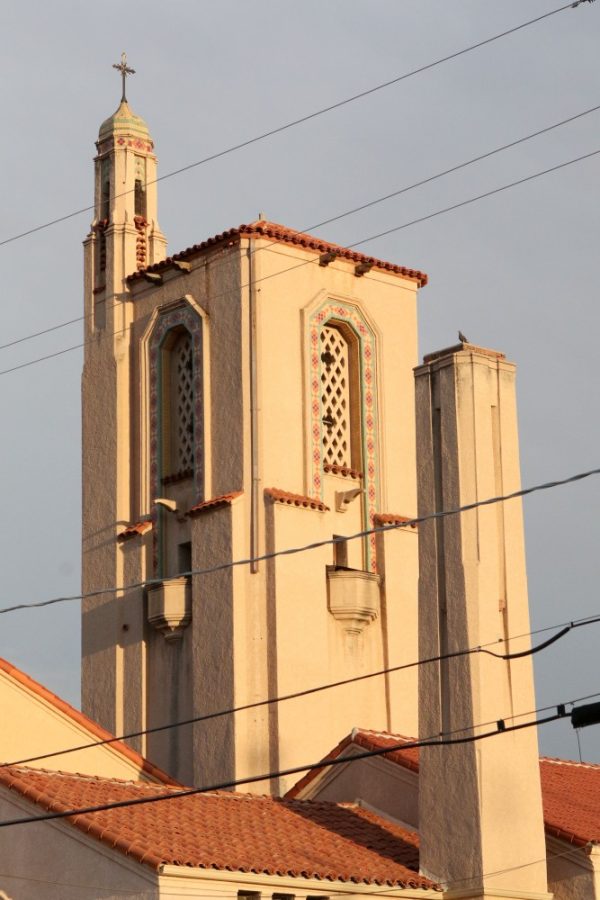In comparison to a semester, 100 days may seem insignificant; the first 100 days of a new presidency, however, can set the tone for the effectiveness of the administration over the next four to possibly eight years.
According to The Washington Post, as of April 20, Trump’s first 100 days of presidency have been long enough for him to sign 28 bills into law, deliver 24 executive orders, 22 presidential memorandums and 20 proclamations.
Regardless of who is the president, 100 days shouldn’t be long enough to change the way people treat each other everyday.
The UA and the surrounding city of Tucson contain a multitude of resources that contribute to welcoming and accepting a variety of ethnicities, cultures and religions in the community and nationwide.
Tucson’s religious community is home to a diverse group of faiths. At UA, there is a number of churches within four miles of campus which includes a United Methodist church, a non-denominational church, a Lutheran church, a Presbyterian church and an Islamic mosque.
Like many Americans during this time, those in the religious community are watching the first 100 days of Trump’s presidency and anticipating how their organizations and community around them will be affected in the next four years.
Trinity Presbyterian Church, located at 400 E. University Blvd., is a mission-oriented church that welcomes a diverse group of parishioners who are focused on community outreach programs.
“Downstairs we house not only our food bank, but also a government agency where people can actually get food stamps,” said the Rev. Dr. Mack Sigmon, Senior Pastor at Trinity. “We have folks that are qualified by the state of Arizona to give food stamps, so people don’t have to go wait in line all day at the state offices.”
With budget cuts from the Trump administration impacting ministries like the one at Trinity, the Rev. Sigmon acknowledges the challenges posed to a mission-oriented church.
RELATED: Arts nonprofits move forward while facing potential budget cuts
“What the parishioners are worried about is the state aspect,” he said. “There have been some cuts in what we can deliver to homeless people to get them through the day or get them through the week. We can’t do as much anymore, because we aren’t getting as much from the state.”
As the pastor, Sigmon reminds his congregation and community that the church will continue its ministry even when facing adversity.
“The response to the cuts is that people are going to need us even more in this area, because where the government cuts back, we have to pick up the slack,” he said. “Every day here is a mission day. There is not a day that goes by that we don’t have homeless people sleeping on this property somewhere or people that are hungry asking us for food.”
The Islamic Center of Tucson may differ from Trinity in doctrine, but both organizations share a common goal: to focus on being open to the community and remain strong in their faith.
Taha Hasan, a senior engineering management student at the university and the Director of Public Relations at the Islamic Center, believes that though Muslims in the community may feel the need to be more cautious, the religion will not change because of a new president.
“People might be more cautious about what they say or do out in public or there might be people that spew more hatred and bigotry because they have been lead to believe that it’s OK to do those type of things, but overall Islam has not changed and will not change due to an election,” Hasan said.
The mosque has received an increase in negativity since Donald Trump’s election, according to Hasan, but does not discredit the overall acceptance of diversity in the Tucson community.
“I think Tucson is pretty unique because a lot of people here are from different faiths and different backgrounds,” he said. “It’s already a very diverse part of the country, so there is not that much bigotry and hatred, but I’ve seen it and it does happen to people.”
Hasan said a man recently broke into the center and vandalized the mosque.
“Negativity has increased, because we’d never seen anything like that happen here before,” he said.
In December, the mosque held a gathering for unity that brought many different religions and people of different backgrounds together to focus on the diversity that is present within the mosque and the city.
RELATED: UA women share their thoughts on Trump’s first 100 days
“We’ve seen a lot of people that have stepped up to show that they aren’t bigots and [that] that’s not a representation of the entire country,” Hasan said. “There are a lot more people that are accepting and supportive of Muslims and the Islamic center.”
The event also helped educate community members about Islam and show that the Islamic Center is open to anyone.
“For most people that have that bigotry and hatred in their hearts, it comes from being uneducated and not knowing what Islam really is,” Hasan said. “They just know the headlines from the negativity that is out in the world. There are more and more Muslims out in the world and out in the community who are able to share our real message and I think that could be overall a positive effect coming from a very negative turn.”
Both Hasan and the Rev. Sigmon agree that their hope for the nation during Trump’s presidency is for people in the community to continue to focus on the importance of embracing diversity and treating all people equally.
Sigmon said he reminds his congregation that in times of adversity, it is important not to lose focus of human values.
“I think the focus is to live out what Christ taught us about caring and loving others and being welcoming to everyone,” Sigmon said.
Follow Zoe Crowdus on Twitter









